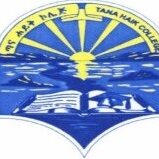Continuing and Distance Education Services at Tana Haik College: Expanding Learning Opportunities for All
Tana Haik College is dedicated to providing educational opportunities beyond traditional classroom settings through its Continuing and Distance Education Services. These services are designed to meet the needs of a diverse population of learners, including working professionals, adult learners, and individuals seeking to enhance their skills or pursue new areas of interest.
Objectives of Continuing and Distance Education Services
The primary objectives of the Continuing and Distance Education Services at Tana Haik College are to:
- Provide Flexible Learning Options: Offer educational programs and courses that accommodate the schedules and needs of working professionals and non-traditional students.
- Promote Lifelong Learning: Encourage lifelong learning and personal development through a variety of educational opportunities for individuals at different stages of their careers and lives.
- Enhance Skillsets: Equip learners with updated skills and knowledge relevant to their professional and personal goals.
- Expand Access: Reach a broader audience by providing accessible and inclusive education opportunities.
Key Components of Continuing and Distance Education Services
- Continuing Education Programs
- Professional Development: Courses and workshops designed to enhance skills and knowledge in specific professional fields, including business, technology, health, and education.
- Certification Programs: Specialized programs that offer certifications in various areas, providing learners with credentials that can boost their career prospects.
- Skill Development: Courses focused on practical skills such as project management, leadership, digital marketing, and more, aimed at improving employability and career advancement.
- Distance Education
- Online Courses: A range of courses available online, allowing students to complete coursework from anywhere. These courses cover a variety of subjects and are designed to be flexible and accessible.
- Blended Learning: Programs that combine online and face-to-face instruction, providing a hybrid approach to learning that offers both flexibility and personal interaction.
- Virtual Classrooms: Real-time online classes that use video conferencing tools to facilitate interactive learning experiences and live discussions.
- Continuing and Professional Education (CPE)
- Workshops and Seminars: Short-term educational events that focus on specific topics or skills, offering intensive learning experiences in a condensed format.
- Executive Education: Tailored programs for executives and senior professionals that address leadership, strategic management, and other advanced topics.
- Community Education
- Personal Enrichment: Non-credit courses and programs designed for personal interest and enrichment, such as arts and crafts, languages, and fitness.
- Community Outreach: Educational initiatives and partnerships with local organizations to provide learning opportunities that benefit the community.
- Support Services for Distance Learners
- Technical Support: Assistance with using online learning platforms, troubleshooting technical issues, and accessing digital resources.
- Academic Advising: Guidance and support for distance learners to help them navigate their courses, manage their schedules, and achieve their academic goals.
- Access to Resources: Access to library resources, online databases, and other academic materials essential for distance learning.
Benefits of Continuing and Distance Education Services
- Flexibility and Accessibility
- Convenient Learning: Learners can access courses and materials at their own pace and on their own schedule, making it easier to balance education with work and personal commitments.
- Geographic Reach: Distance education removes geographical barriers, allowing individuals from various locations to participate in educational programs.
- Career Advancement
- Skill Enhancement: Professional development and certification programs help individuals gain new skills and qualifications that are valuable in the job market.
- Career Transition: Continuing education provides opportunities for career changers to acquire new knowledge and skills needed for different professions.
- Lifelong Learning
- Personal Growth: Continuing education supports lifelong learning by offering opportunities for personal enrichment and intellectual growth.
- Adaptability: Learners can stay updated with industry trends and emerging technologies, ensuring they remain competitive in their fields.
- Cost-Effectiveness
- Affordable Learning: Many continuing and distance education programs are designed to be more affordable than traditional degree programs, providing cost-effective options for learners.
- Variety of Learning Options
- Diverse Programs: The range of available programs and courses allows learners to choose from various fields of study and areas of interest, catering to different educational needs.
Enrollment and Registration
To participate in continuing and distance education programs at Tana Haik College, individuals can follow these steps:
- Explore Available Programs: Review the catalog of programs and courses offered, including details on course content, duration, and format.
- Register for Courses: Complete the registration process through the college’s online portal or contact the Continuing Education Office for assistance.
- Access Learning Materials: Once enrolled, students will receive access to course materials, online platforms, and any required textbooks or resources.
- Engage in Learning: Participate in online classes, complete assignments, and take advantage of available support services to successfully complete the program.

